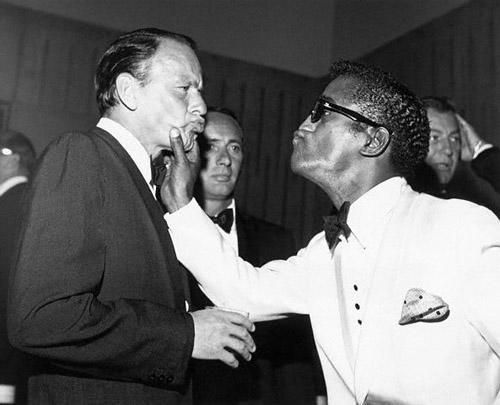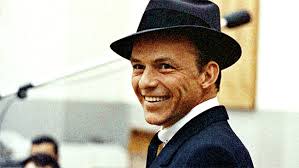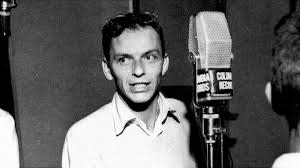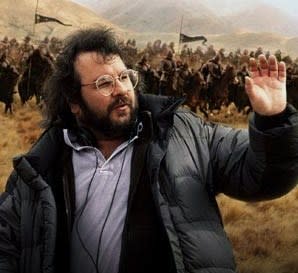Bart & Fleming: A Mea Culpa; Frank Sinatra Re-Cast; Tent Pole Assembly Line

Peter Bart and Mike Fleming Jr. worked together for two decades at Daily Variety. In this weekly column, two old friends get together and grind their axes, mostly on the movie business.
FLEMING: I need to start off on a serious note. Deadline ran an article last week that generated controversy and hurt feelings. An unfortunate headline–Pilots 2015: The Year of Ethnic Castings – About Time or Too Much of Good Thing?—created a context from which no article could recover. My co-editor-in-chief Nellie Andreeva’s goal was to convey that there was such an uptick of TV pilot casting of people of color that it pinched white actors who’ve historically gotten most of the jobs, and to question if this could last if it was being treated as a fad. All this was undermined by that headline (which we changed after the fact) and a repetition of the word “ethnic” that came off cold and insensitive.
BART: When you and I worked for years in print, we were stuck with what we published; it was there forever. Did you consider taking the story down when you realized how it offended people?
FLEMING: That story was up all night. It was 12 hours before I awoke to numerous e-mails, some by people of color who are sources, who trust us, who were rightfully incensed. At that point, the damage was done. I don’t believe you can can make an unwise story disappear and pretend it didn’t happen. I observed how Amy Pascal raced around with knee-jerk apologies to anyone who’d listen, after those stolen Sony e-mails surfaced. Her actions felt like panicked damage control to me; we decided to face the consequences and take our lumps. We did that in the comment tail following that story, where over 700 readers teed off on us. Nellie is trained in the sciences and used those sensibilities to analyze a data sample; the word “ethnic” is commonly used by casting agents. None of that works when talking about people, and race. Our writers, and editors, can be so focused on the trees they sometimes forget to look at the forest, or in this case, the readers who are much more than statistics. A perfect storm of events left us vulnerable, including me choosing the worst time to be zonked from a 22-hour return flight from New Zealand, and normally smart editors on duty failing to respond decisively even after a torrent of hostile comments rolled in.
BART: I have always nodded off at the word ‘diversity’ – it somehow sounds blandly corporate. The dictionary defines it as “composed of distinct forms and qualities” and I find hope in the notion of distinctive. People who are distinctive deserve the opportunities, irrespective of their color. Having said that, casting people tell me the good news that enormous opportunities have opened up for distinctive actors of color thanks to the success of several new shows. The big question: Will that phenomenon extend to the domain of show runners, which seems more like a fraternity? I would like to see the industry launch a drive to recruit a more distinctive (and diverse) array of show runners who, in turn, could nurture a more distinctive (and diverse) creative community. I don’t think the broader opportunities for actors will continue unless that trend is fed by a truly distinct and varied group of writers and producers and, yes, even executives.
FLEMING: I agree with all this, but after our turn in the barrel, I wanted to say a few things to our core readers who felt betrayed. That original headline does not reflect the collective sensibility here at Deadline. The only appropriate way to view racial diversity in casting is to see it as a wonderful thing, and to hope that Hollywood continues to make room for people of color. The missteps were dealt with internally; we will do our best to make sure that kind of insensitivity doesn’t surface again here. As co-editors in chief, Nellie and I apologize deeply and sincerely to those who’ve been hurt by this. There is no excuse. It is important to us that Deadline readers know we understand why you felt betrayed, and that our hearts are heavy with regret. We will move forward determined to do better.
BART: Okay, next topic. So here’s a question no journalist likes to deal with: Are we too easy to manipulate? You and I, Mike, are constantly interacting with public figures who are geniuses at the con. And let’s face it: We don’t like to slam people arbitrarily. Even when we sense they’re serial sociopaths, we often give them a break. I was thinking about all this over the weekend as I watched the engrossing HBO movie, Sinatra: All or Nothing At All. Over the years the press regularly beat up on Sinatra. He was accused of being a gangster, a commie, and a shill for the Kennedys and the press ran all that stuff. And unlike most stars, he never tried to get the media on his side. He was rude and imperious. I had several encounters with him both in my role as a studio executive (he acted like a sh**) and as a reporter (he was even worse).

FLEMING
: There are few benefits from doing this job from Long Island; one of them is I don’t carouse with these people and another is we report on them mostly from a business context. People might tell me that so-and-so is an SOB or something else unflattering; rarely is it relevant to the stories I write about them. That allows me to not get jaded and bitter about the movie business, which maybe explains why it still fascinates me after 25 years. I can go see a movie like The Gunman because it stars a trifecta of my favorite actors – Sean Penn, Idris Elba and Javier Bardem – and not have the overriding thing in my head be that Penn can give Sinatra a run for his money on being tough with journalists. Beyond his performance, the only thing I think about after watching is: how can a guy my age (54) be in such superb shape; and how his hands-on humanitarian work in Haiti and his rush to help after Hurricane Katrina are things the Sinatra in that HBO doc would have applauded. I never met Sinatra, but to me he symbolizes classic Hollywood and this doc does nothing to dispel my image of him as the cool personification of the Paul Anka song My Way that Sinatra made all his own. I love all the books about his incredibly eventful life, and was always been impressed by how he used his clout to pave the way for his pal Sammy Davis Jr. to be treated as an equal when they performed and palled around together in an otherwise segregated Las Vegas.

BART
: I like your carefree attitude. It wasn’t that I wanted to meet Sinatra or other stars. But when they are in your office arguing about scripts and deals, you can’t avoid them. You see them under duress, when they are not at their best. Watching the 4-hour HBO movie (directed by the superb Alex Gibney) I began to feel bad about all this. The private Sinatra was a man of great courage and character. He stood up for black performers when no one else would. He was enormously generous, putting his money behind unpopular social causes. He traveled constantly to entertain our troops even when the press was questioning his patriotism. He was also the consummate pro as a musician – not only did he study singing with a voice teacher, he even wrote a book about it but never mentioned that his book existed. The dirty little secret: I suspect Sinatra was really a good guy but managed to keep that, too, a secret. Gibney cleverly utilizes the voices of stars I never thought would cooperate – Mia Farrow, Lauren Bacall, even Judith Campbell (girlfriend of JFK and Sam Giancana). The doc relies heavily on remarkable concert footage never before seen (it was hidden in Nancy Sinatra’s house) and discovered by Frank Marshall (exec producer). The film shapes up as a poignant musical memoir, which is how Sinatra intended it.
FLEMING: I’ve read plenty about the drinking and the carousing and the beautiful women he romanced; the best part of this movie to me was Gibney’s depiction of how a New Jersey kid found his voice and how that search caused him to clash with his skeptical father (who struggled to feed his family during the Depression). It reminded me of what fellow Jersey kid Bruce Springsteen went through with his father, chronicled in so many Springsteen songs. This film becomes more evidence that HBO, Netflix and other small-screen showcases are the best things to ever happen to the documentary genre, for films that once played festivals and mostly disappeared. This movie makes you salivate to see Martin Scorsese clear the decks and make that Sinatra feature with Leonardo DiCaprio. Even though I’ve heard he has run into big obstacles from the family.

BART
: I think the press gave Sinatra a raw deal. His life had dramatic ups and downs – organizing the JFK inauguration one moment, begging for small movie roles the next. He was at once arrogant and vulnerable. We all probably should have been nicer to him, but he made it hard.
Next topic: Since we’re talking about ‘distinctive,’ I am delighted by HBO’s deal with Vice Media to launch a daily newscast that breaks the mold of existing network news shows. Though much is made of NBC’s exile of Brian Williams and ABC’s promotion of David Muir, the hard truth is that the existing shows are all numbingly similar. There’s a few (very few) minutes of hard news followed by fluff, all of it interspersed with commercials for arcane pharmaceuticals. OK, CBS is trying to inject some investigative material but much of it consists of testimony by former CIA bureaucrats or “security experts” who are too cautious to contribute insight. Given its obstreperous beginnings, I hope and trust that Vice will bring something new to the table – true investigative material or more in-depth reporting. Or even an occasional element of humor: When Ted Cruz announced his candidacy before a packed auditorium at Liberty University, were those students compelled to be there because it was an “assigned class?” And who is really the author of those fraternity chants – all the chants at all the fraternities? Give us the word, Vice!

FLEMING
: Are you trying to turn this into a TV column? I’ll only say that if HBO finds a way to get the country interested in news, more power to them. The key will be balance: it’s great to be disruptive. But you need an infrastructure to ensure that news is fair and accurate. Can you imagine how long that took to build at the networks? Hey, how about a detour into film? I have written numerous stories recently about big studios buying tentpole projects based on proof-of-concept short films, and we broke a story Friday about Paramount hiring Akiva Goldsman to supervise the incubation of multi-part Transformers sequels and spinoff films. This follows moves to make back-to-back-to-back Avatar sequels, Star Wars sequels and spinoffs formulated before the first JJ Abrams movie comes out, and the same for the Fast and Furious franchise under returning director Justin Lin. This is the new step in studio franchise feeding. What do you think?
BART: I guess what’s happening is that the studios are partially re-creating the old studio system in order to feed the franchises. This means more writers, directors and actors under contract, more development, more overhead — all the things that they backed away from after the box-office collapse of the late ‘50s and early ‘60s. What it also means, however, is that even skimpier resources will be left over to nourish non-franchise movies — films for grownups. Here’s the danger: Will tentpole pictures increasingly seem like they’re coming off the assembly line? And will non-franchise movies effectively disappear?

FLEMING
: I share your concern that studios will have little room for anything but branded blockbusters; you see that at Disney. But if a studio is willing to commit resources to these tentpoles, this system makes sense. It started with Peter Jackson making The Lord Of The Rings trilogy in one long shoot, followed by The Hobbit. James Cameron just sat seven months in a writers room with his Avatar sequels co-writers Amanda Silver & Rick Jaffa, Josh Friedman and Shane Salerno, breaking down a trilogy he’s now ready to shoot at Jackson’s Wellington headquarters. I bet right now that Universal wishes it had shot all three installments of Fifty Shades Of Grey in one go. It was no mystery that they would make the whole series after spending large on a racy book trilogy that sold over 100 million copies worldwide. Director Sam Taylor-Johnson would have done all three. She exited last week and now they have to start from scratch with a new filmmaker. The momentum and continuity is lost. The trick is being savvy enough not to do it with John Carter, Battleship, Norbit or The Lone Ranger, films that don’t deserve an encore. A studio could be in big trouble investing hundreds of millions hatching a multi-film franchise to find nobody cares.
Related stories
Academy Museum Blasts Off Spending $344, 000 For Rare '2001: A Space Odyssey' Model
Gene Saks Is Dead At 93; Directed Neil Simon's 'Barefoot In The Park,' 'Odd Couple' Films
'Saturday Night Live' With Host Dwayne Johnson Slips To Season Low
Get more from Deadline.com: Follow us on Twitter, Facebook, Newsletter


